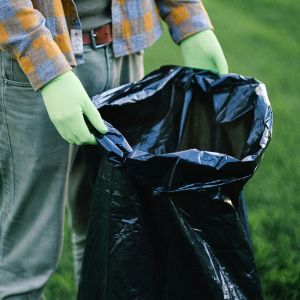Which Bin Bags Are Best for Heavy Waste? A NZ Guide
Disposing of heavy or bulky waste requires more than just any bin bag. In this guide, we look at what makes a bin bag suitable for heavy-duty use, what features to look for, and the best sizes and materials available in New Zealand. Whether for commercial kitchens, outdoor areas, or industrial settings, the right bag can save time, mess, and cost.
Understanding Heavy-Duty Waste Requirements
When to Use Extra-Strong Bin Bags
Heavy-duty bin bags are essential when handling waste with sharp edges, liquids, or high volume. This includes food waste in commercial kitchens, bulky materials in workshops, and general rubbish collection for large facilities. Using regular bags in these situations can lead to tears, leaks, and double-handling.
Industries That Need Heavy-Duty Options
Sectors that benefit from strong bin bags include:
-
Hospitality (restaurants, caterers)
-
Manufacturing and construction (wood, metal offcuts)
-
Healthcare (medical waste)
-
Outdoor venues (events, parks) These industries need bags that resist tearing and handle significant weight.
Key Features to Look For
Gauge, Seal Types, and Capacity
-
Gauge refers to the thickness of the plastic. For heavy waste, a minimum of 30 microns (120 gauge) is recommended, with stronger options exceeding this.
-
Seal Types impact the bag’s strength and leak resistance. There are different seal types available, each designed to meet specific waste-handling needs and performance expectations:
-
Star Seal: Provides superior strength and prevents leaks by distributing weight evenly across the bottom—ideal for heavy or wet waste.
-
Flat Seal: Simpler construction but more prone to leaking when overfilled.
-
Gusset Seal: Expands to fit wider bins but may not offer the same leak resistance as star seals.
-
Capacity should match the bin—don’t overfill smaller bags just to cut corners, as this increases the risk of breakage.
Tear and Puncture Resistance
For handling sharp, jagged, or heavy waste, the choice of material is critical:
-
High-Density Polyethylene (HDPE): Stronger and more rigid, offering excellent puncture resistance but with less stretch. Best for sharp or rigid waste.
-
Linear Low-Density Polyethylene (LLDPE): More flexible and stretchable, ideal for accommodating irregular shapes without tearing.
Understanding the difference allows you to select a material that suits your specific waste type and handling requirements.
Top Sizes and Types Available in NZ
Commercial Kitchen Use
Popular sizes for food and prep areas include:
-
Compostable liners certified for commercial food waste bins
-
Clear liners for visibility in waste sorting
Outdoor and Industrial Waste
For high-volume or rough waste:
-
240L heavy-duty bags for wheelie bins
-
Extra-thick black bags (40 microns or more)
-
UV-stabilised bags for outdoor conditions
Frequently Asked Questions
What size bin bag is best for 240L bins?
For a standard 240L wheelie bin, use bin bags with a 240L capacity and dimensions around 1150mm x 1350mm. Thicker gauge is advised for outdoor or rough use.
How thick should a heavy-duty bag be?
Look for a gauge of 30 microns or higher. For very heavy or sharp waste, opt for bags with gauges reaching 40–50 microns or more, depending on the severity of the application.
Can I use compostable bags for heavy waste?
Only if they are certified for high-stress use. Most compostable bags are designed for organic waste and may not withstand heavy-duty handling.
What do I do if I need a thinker bag than currently available as stock?
At Insinc we have suppliers in NZ who can custom make bags to your specifications. Minimum quantities vary according to the bag size and micron but are expected to be around 5,000 bags. Contact us for a quote.
Helpful Resource
Further Reading: Biodegradable and Compostable Plastics
Learn more about the differences and performance of sustainable plastic alternatives.
Conclusion
Choosing the right bin bag for heavy waste in New Zealand means considering thickness, material, and intended use. Heavy-duty waste needs reliable solutions to prevent breakage and ensure hygienic, efficient disposal. Refer to Insinc Products and use our chart to make informed choices.
Posted: Wednesday 9 July 2025



